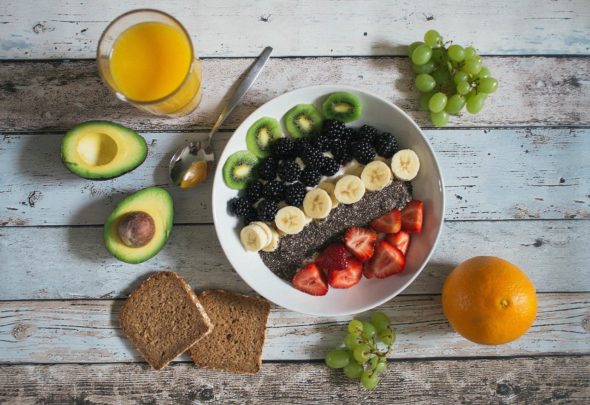Eating a Better Breakfast for Energy and Productivity

You’ve likely heard the age-old adage that breakfast is the most important meal of the day. But it’s also the most commonly skipped meal; in the U.S., the average person only eats breakfast three days out of the week. Skipping breakfast may not seem like a big deal, but it can have unexpected consequences if you make it a habit.

5 Benefits of Breakfast
It’s understandable why so few people eat breakfast every single day. Mornings are usually rushed and chaotic, and even if you do have time to sit down to eat, you may find food unsettling first thing in the morning. However, there are compelling reasons to make breakfast a priority, even if it means changing your routines. For example:
- Because many breakfast foods are rich in vitamins and minerals, those who eat breakfast are more likely to hit their recommended daily intake of these nutrients.
- Eating a healthy breakfast before work or school gives you the energy to power through until lunch.
- Breakfast also provides nutrients that help maintain concentration and improve memory, making breakfast particularly important for students.
- Many people who skip breakfast end up compensating for their hunger by overeating at lunch, which can lead to weight gain.
- Regularly having breakfast can improve your heart health, as the body uses blood sugar most effectively in the morning.
5 Tips for a Better Breakfast
- Though you may be tempted to shop for breakfast staples in the frozen food aisle, you’re better off with fresh foods. Unfortunately, many of the classic and delicious frozen breakfast food options contain nutrient-stripped carbs, harmful additives, trans fats, high fructose corn syrup, and other undesirable ingredients.
- When shopping for breakfast foods and ingredients, opt for whole grains. Whole grains such as oatmeal are rich in fiber, B vitamins, zinc, iron, and magnesium. Also, research shows that eating more whole grains can decrease the risk of stroke, heart disease, obesity, and Type 2 diabetes.
- The ideal breakfast should include plenty of protein, especially if you want to lose weight. Studies show that consuming 30 grams of protein within 30 minutes of waking up can help curb cravings, making you feel fuller and less likely to over consume later. If the idea of eating 30 grams of meat protein in the morning makes your stomach turn, then consider taking protein powder supplements or having a protein bar for breakfast. If weight loss is your focus, you can opt for products like collagen and MCT protein bars that give you fuel and energy while promoting fat burn.
- If you don’t naturally enjoy breakfast or breakfast foods, incentivize yourself to slow down and eat by only drinking your morning cup of coffee while sitting down to the meal. Aside from motivating you to eat breakfast, drinking coffee with food will avoid the negative effects of drinking caffeine on an empty stomach.
- When you have the time to prepare a full meal, try to have a breakfast that’s as balanced as possible. As previously discussed, an ideal breakfast should include whole grains (like oatmeal, cereal, and certain bread) and protein (if meat or protein bars aren’t your thing, opt for Greek yogurt, nuts, and seeds). Aside from that, breakfast should also incorporate lean dairy and fruit.
Enjoying Your Morning Hours
Actually enjoying the morning, especially during a busy work week, may sound impossible to many. With all the responsibilities of life looming, making time for yourself in the morning may feel unrealistic. However, taking strides to improve the quality of your early hours can go a long way for both productivity and health—and eating a hearty breakfast plays a crucial role.
Eating a full, enriching breakfast sets you up for a day of focus and energy. Though it can be tough to make the time for food in the morning, you’ll thank yourself when 11 a.m. rolls around, and you feel full and satiated rather than hungering for lunch.
- Restaurant Germs: Improving Cleaning Practices For Commonly Contaminated Surfaces - April 15, 2024
- 11 Cancer-Fighting Foods to Reduce the Risk of Cancer - March 18, 2024
- Safety and Aesthetics: Tips for Landscaping Around Your Wellhead - February 20, 2024
